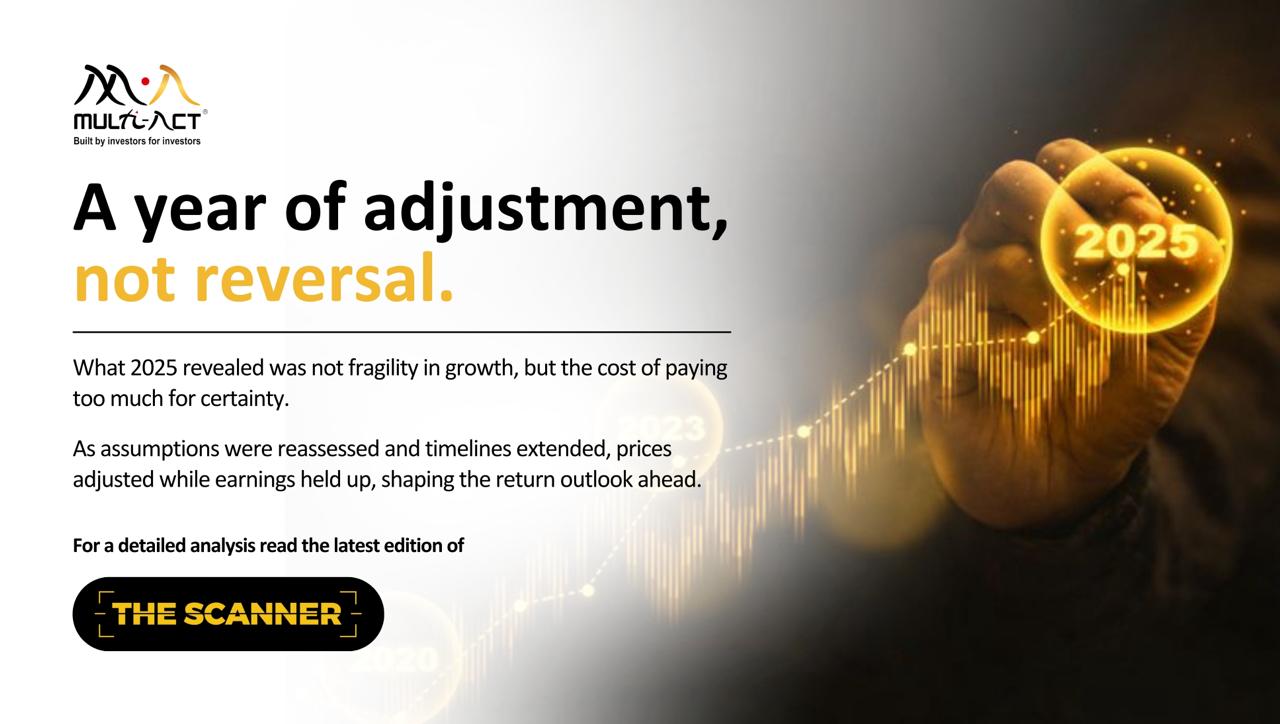
What Happened and What’s in Store for 2026
2025 did not challenge growth. It challenged assumptions. As expectations moved ahead of actual delivery, prices adjusted … Continued
Read more16 September 2021

We often hear contradictory cliches. Cash is trash. Cash is king. which side is right?
Cash is perhaps the most controversial component in the portfolio. Controversial because there is no correct answer to how much cash one should hold in the portfolio.
It’s the million-dollar question!
And the answer is highly subjective.
At the one end, you have Ray Dalio of Bridgewater Associate. In a Reddit “ask me anything” session, Dalio stated, ‘I still think that cash is trash relative to other alternatives, particularly those that will retain their value or increase their value during reflationary periods.’
The reasoning is that the central banks are printing ridiculous amounts of money and putting it into the financial system.
On the other hand, you have proponents of the old adage- ‘Cash is king’.
The thinking goes that cash and liquid funds tend to be very stable investments and do not share a high correlation with stocks, gold, or commodities. As a result, holding a healthy allocation of liquid cash can enable you to rebalance opportunistically during market selloffs by converting some of your cash position into stocks, gold, and/or commodities and thereby enhance your long-term risk-adjusted returns.
Which side is correct?
Well, as I mentioned earlier, the answer is highly subjective and varies depending on the risk profile, investment objectives, market views, alternate opportunities available and many other factors.
In that case, is there a middle way?
Well, we can consider the market itself, i.e. Let the market be a guiding force.
Let me explain this with an illustration.
Consider the current Nifty valuations.

Source: Multi-Act
If we take the normalised earnings, the current valuation is near +2 SD. This shows the market has turned expensive. A similar level was seen during the peak of 2008 (just before the financial crisis).
Depending on the market valuations, let’s consider taking active cash calls. We have assumed a 3.5% return of cash component and 25 bps cost of the transaction.
Our Cash calls will be based on:

Based on valuations and the above parameter, this is how equity and cash allocation look like since 2003.

Source: Multi-Act
How did the cash call portfolio perform vis à vis the market (Nifty)?

Source: Multi-Act

From the above chart and table, we can observe the following:
How?
Cash is the most important asset to have when the market starts crashing. Although, no one can predict when it will exactly happen.
Let’s understand this idea through an example where the market hypothetically corrects 25% and we assume the cash call portfolio is 33% in cash.

From the above table, we can observe:
Not to mention, behaviourally, it can reduce the chances of panic-based selling when markets get volatile.
I know, I know, it is very difficult to sit on cash during a strong bull market. Particularly, when stocks’ daily returns are equivalent to yearly cash returns. It’s hard to step aside and watch the party from the sidelines.
All we want is to stay fully invested and enjoy this wonderful rally.
But this is pro-cyclical behaviour.
The American research firm Dalbar has been publishing a report ‘Quantitative Analysis of Investor Behaviour’ every year. From this study, the researchers have observed that investors behaviour is pro-cyclical to their detriment rather than being anti-cyclical.
Pro-cyclical actions are reinforced by various social effects-herding, conventionality, peer risk and human tendency to extrapolate.
This is one side (i.e., to remain fully invested).
Let’s look at the other side.
Holding too much cash over the long term is not optimal as inflation rates being way higher than returns on cash and equivalents. The adage- ‘cash is king’ really reflects our behavioural bias. It reflects loss aversion bias, i.e., we hate losing money much more than we enjoy making it.
In such a dilemma, it is important to remember the basics.
Investors can only earn the underlying return on a business. It is a claim on a long stream of future cash flows. The underlying return is not unbounded i.e., it is finite.
The more you pay for an asset relative to its underlying fundamental returns as a business, the less return you should expect to receive going forward as a shareholder.
In our example, when the market valuations are below the mean level, we are considering 100% investment in the market. And when the valuations start becoming expensive as it moves from mean to +0.5 SD to +1 SD and so forth, we start trimming and start moving to cash.
So, finally, cash is trash or cash is king?

2025 did not challenge growth. It challenged assumptions. As expectations moved ahead of actual delivery, prices adjusted … Continued
Read more
Macro numbers alone rarely tell the full story. When jobs, consumption, credit, and inflation are considered together, … Continued
Read more
The AI story everyone sees is technological. The story that a few notice is financial. Revolving expenditures, … Continued
Read moreReceive monthly updates by signing up to our newsletter.
| Sr. No. | Received from | Pending at the end of last month | Received | Resolved* | Total Pending # | Pending complaints > 3 months | Average Resolution time^ (in days) |
|---|---|---|---|---|---|---|---|
| 1 | Directly from Investors | 0 | 0 | 0 | 0 | 0 | 0 |
| 2 | SEBI (SCORES) | 0 | 0 | 0 | 0 | 0 | 0 |
| 3 | Other Sources (if any) | 0 | 0 | 0 | 0 | 0 | 0 |
| Grand Total | 0 | 0 | 0 | 0 | 0 | 0 | |
Number of complaints received during month against the IA due to impersonation by some other entity: Nil
Note: In case of any complaints received against the IA due to impersonation of the IA by some other entity, the IA may adjust the number of such complaints from total number of received/resolved complaints while preparing the above table. Further, IA must close such impersonation related complaints after following the due process as specified by SEBI/ IAASB.
* Inclusive of complaints of previous months resolved in the current month.
# Inclusive of complaints pending as on the last day of the month.
^ Average Resolution time is the sum total of time taken to resolve each complaint in days, in the current month divided by total number of complaints resolved in the current month.
| Sr. No. | Month | Carried forward from previous month | Received | Resolved* | Pending# |
|---|---|---|---|---|---|
| 1 | April, 2025 | 0 | 0 | 0 | 0 |
| 2 | May, 2025 | 0 | 0 | 0 | 0 |
| 3 | June, 2025 | 0 | 0 | 0 | 0 |
| 4 | July, 2025 | 0 | 0 | 0 | 0 |
| 5 | August, 2025 | 0 | 0 | 0 | 0 |
| 6 | September, 2025 | 0 | 0 | 0 | 0 |
| 7 | October, 2025 | 0 | 0 | 0 | 0 |
| 8 | November, 2025 | 0 | 0 | 0 | 0 |
| 9 | December, 2025 | 0 | 0 | 0 | 0 |
| Grand Total | 0 | 0 | 0 | 0 | |
* Inclusive of complaints of previous months resolved in the current month.
# Inclusive of complaints pending as on the last day of the month.
| SN | Year | Carried forward from previous year | Received | Resolved* | Pending# |
|---|---|---|---|---|---|
| 1 | 2021-22 | 0 | 0 | 0 | 0 |
| 2 | 2022-23 | 0 | 0 | 0 | 0 |
| 3 | 2023-24 | 0 | 0 | 0 | 0 |
| 4 | 2024-25 | 0 | 0 | 0 | 0 |
| Grand Total | 0 | 0 | 0 | 0 | |
* Inclusive of complaints of previous years resolved in the current year.
# Inclusive of complaints pending as on the last day of the year.